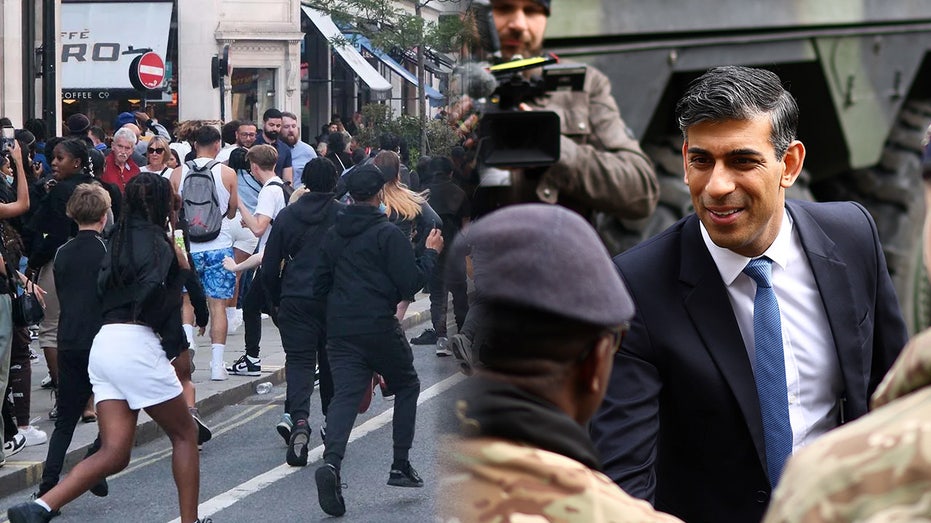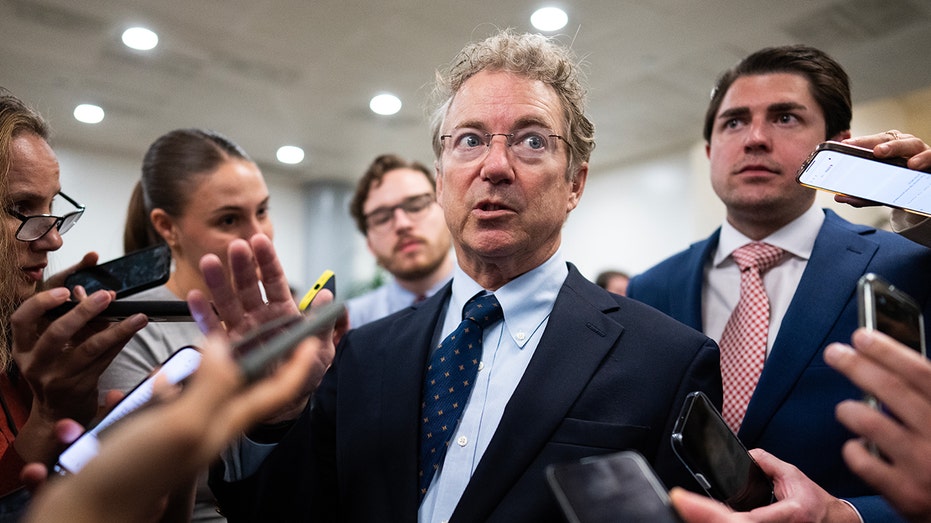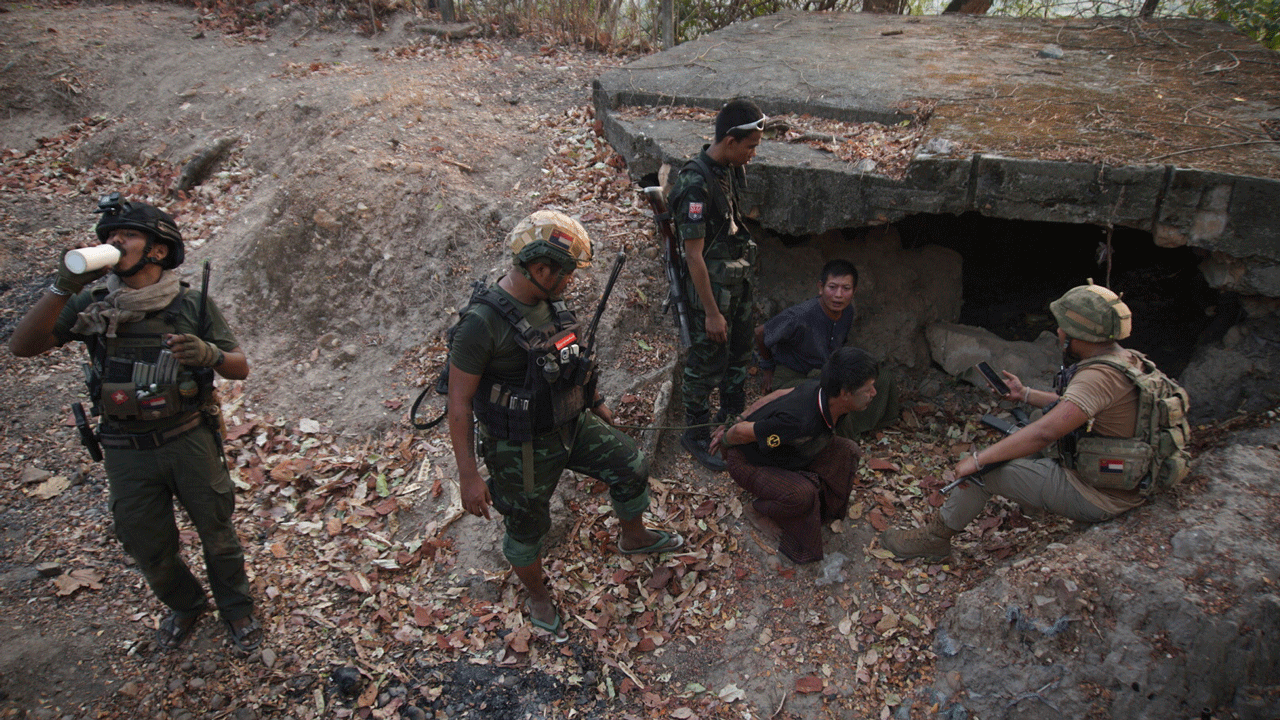British Prime Minister Rishi Sunak has promised to institute a national service requirement should the Conservative Party win the general election on July 4.
“The appeal of the idea is particularly geared to more right wing voters who might have been leaning to vote for the Reform Party and may now switch back to Conservative,” Alan Mendoza, co-founder and executive director of the Henry Jackson Society, told Fox News Digital.
Sunak last week announced that the U.K. would have a general election, catching many in his own party off-guard. He made the announcement alone, standing in the rain outside the prime minister’s residence at 10 Downing Street while the 1997 Labour Campaign theme “Things Can Only Get Better” played in the background.
Sunak has since then started laying out his proposal for the next phase of his government should he win the general election — a feat that appears increasingly difficult as the polling puts the rival Labour Party ahead by around 20 points and the Conservatives look to replace some 77 MPs who have decided not to run for re-election, according to The Institute For Government.
A UK ELECTION HAS BEEN CALLED FOR JULY 4. HERE’S WHAT TO KNOW
Chief among the prime minister’s proposals is the eye-catching national service requirement, which the U.K. abandoned as a practice around 60 years ago: The last mandatory service requirements occurred after World War II and ended in 1960.
The previous national service requirement meant 18 months of military training and four years on the reserve list, which would allow the government to draft citizens on short notice, according to the BBC.
The new scheme would provide 18-year-olds with the choice to participate in either community volunteering one weekend every month for a year (totaling 25 days) in a service such as the National Health Service (NHS), fire brigade, ambulance service, search and rescue or critical local infrastructure or a year-long military participation in areas such as logistics, cybersecurity, procurement or civil response operations.
The Conservatives would establish a Royal Commission to design the program, with a pilot scheme accepting applicants in September 2025 with plans for a national rollout by 2029, The Telegraph reported.
A YouGov poll from last year found around 45% both supporting and opposing any compulsory program, while the majority would support some voluntary version of the scheme.
British Home Secretary James Cleverly insisted the government would not force anyone to complete military training as part of their service, saying during an appearance on Sky News’ Sunday Morning with Trevor Phillips: “There’s going to be no criminal sanction. There’s no one going to jail over this.”
TRIAL SET FOR UK MEN ACCUSED OF COLLABORATING WITH HONG KONG INTELLIGENCE SERVICE
“This is about dealing with what we know to be the case, which is social fragmentation,” Cleverly said. “Too many young people live in a bubble within their own communities. They don’t mix with people of different religions. They don’t mix with different viewpoints.”
Cleverly said the scheme would seek funding from around $1.27 billion out of a possible $7.5 billion gained through a crackdown on tax avoidance and evasion, with Conservatives estimating that the scheme would require around $3.2 billion a year by the end of the decade, The Guardian reported.
Sunak has consistently faced criticism for “no longer representing right-wing people in the U.K.,” according to former Boris Johnson adviser Thomas Corbett-Dillon, but Mendoza argued that this new policy is an effort to appeal to that more hardline voter base.
“National Service tends to be a very popular idea with British voters,” Mendoza said. “The Conservative Party’s conceptualization of it has less to do with the 1950s imagery that has been derided by some commentators and much more with the Scandinavian models currently in use that stress responsible citizenship.”
“All the evidence in those countries suggests young people view it as an essential part of their transition to adulthood, as well as teaching useful skills and community spirit,” Mendoza added.
Nigel Farage, the honorary president of Reform U.K., argued that the national service scheme aimed to appeal to his voters, as Reform and the Conservatives fight over voters in the upcoming election.
“You follow what the focus groups say — you say, by doing this I can attack the Reform vote,” Farage told Sky News. “That’s what it’s all about. And look, it’s totally impractical. The army has shrunk from 100,000 to 75,000 in 14 years of Conservatism.”
However, Corbett-Dillon argued that the effort will not prove successful, ridiculing the government for resorting to a “last ditch attempt” to stoke patriotism, only for it to backfire.
“So the government, in a last ditch attempt to fix a broken nation, suggested a National Service to bring the people together, an opportunity to serve your nation, to give back, to ask not what your country can do for you, but what you can do for your country,” Corbett-Dillon said. “And what happened? The new ‘multicultural’ generation laughed the whole thing off, ‘Why would I serve a country I hate?’ was the common message across social media.”
“The fact that the United Kingdom can’t even implement a national service shows you that it is now a failed nation — all thanks to ‘multiculturalism,’” he added, blasting the Conservatives as being “really Democrats” and claiming that Sunak would “very quickly take up a lavish Silicon Valley job” when he loses the upcoming election, pointing to former Deputy PM Nick Clegg, who now serves as the President of Global Affairs for Facebook.
Labour leader Sir Keir Starmer ridiculed the idea as just another of the “endless spinning around that Tory governments have subjected” the U.K. voters to over the past few years, arguing that the Conservatives present “a new plan every week, a new strategy every month.”
UK ARTISTS, VETERANS CREATE 80 SAND SILHOUETTES ON BEACH FOR 80TH ANNIVERSARY OF D-DAY LANDINGS
“All this spinning round and round — it’s symbolic of the chaos and instability,” Starmer said during a keynote speech delivered in West Sussex as he gets his party’s campaign into gear. “You’ve seen it over the past few days with the desperation of this national service policy.”
Starmer claimed that the policy would receive funding from abandoned “leveling up” schemes, which would use taxpayer money to help revive business across the U.K. to create jobs and bolster the economy. Starmer insisted that the money should instead go to the National Health Service, which the Labour Party consistently keeps at the center of its campaign strategies.
Labour’s Shadow Work and Pensions Sec. Liz Kendall dismissed the plan, saying elections “should be about the country’s future, not fighting for a better past.”
“This is an unfunded commitment, a headline-grabbing gimmick. It is not a proper plan to deliver it. It doesn’t deal with the big challenges facing young people who are desperate to get the skills and qualifications they need to get good jobs, to have a home they can call their own,” Kendall said during an appearance on Sky News’ Sunday Morning with Trevor Phillips.



